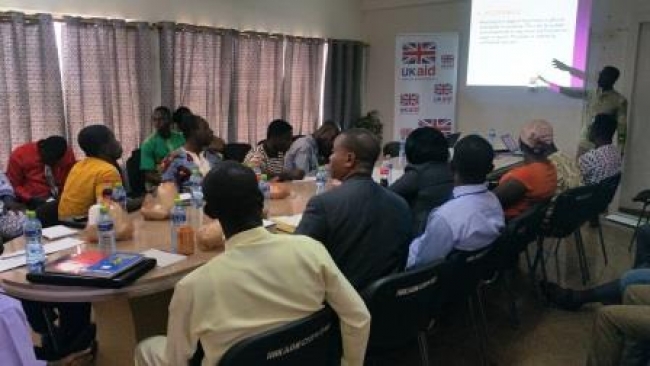Respect for rights of vulnerable people is an important consideration within the development space. This is because abuse of the rights of any individual is an affront to the whole of society. It is, therefore, incumbent on everyone to respect the rights of others and demand others do same. When society fails to protect the human rights of its members, especially the most vulnerable, it fails in its mandate to protect and harness the full potential of all its members for society’s development and the development of its members.
Being a mental health and development advocacy organisation, BasicNeeds-Ghana recognises the need to promote the rights of people with mental illness and epilepsy and engage relevant bodies to do same. This is because human rights issues are also developmental issues. It is for such reasons that the organisation is continuing its work of influencing traditional and faith-based healers in order to bring about improved respect of the rights of their clients, especially those with psychosocial needs. This is against the backdrop that a section of society perceives the non-formal mental health service sector to be guilty of abusing the rights of people with mental illness and epilepsy. While this assertion may indeed be true of some traditional and faith-based healers, the fact remains that the informal mental health service providers form an integral part of Ghana’s general mental health care system. Various categories of people, most of them poor, continue to patronise their services.
Consequently, BasicNeeds-Ghana, with funding from UKaid, is implementing various interventions aimed at equipping traditional and faith-based healers to appreciate human rights issues and improve the rate of referral of clients to formal mental health facilities for management. These interventions form part of a project, titled “Support Mental Health Services in Ghana”. The project seeks to increase access to formal mental health services by people with mental illness or epilepsy who seek treatment from spiritual / prayer camps and traditional healers. These interventions have led to increased community-based collaboration between informal mental health practitioners and mental health professionals. Through these engagements, many faith-based healers and traditional healers have also committed themselves to do away with chaining and shackling their clients. This has significantly reduced the incidence of chaining at the prayer camps and traditional healing homes, and instead, given rise to referrals of people with mental disorders to formal health workers for treatment. Some traditional and faith-based healing centres have become openly invited mental health professionals to carry out outreach treatment services for patrons of traditional and faith-based healing centres.
Dr. Kwaw Armah Arloo, Specialist Psychiatrist and former Medical Director of the Ankaful Psychiatric Hospital had this to say about the new development: “When I was posted to Ankaful for the first time in 2003, I came here to render services; I was prevented from getting access to clients. I was allowed on my second attempt and what I saw, I wept bitterly. I am happy that now we can come here and render services in a friendly environment. All these are as a result of the engagements you (BasicNeeds-Ghana) have had with them (prayer camps) in the past.”


